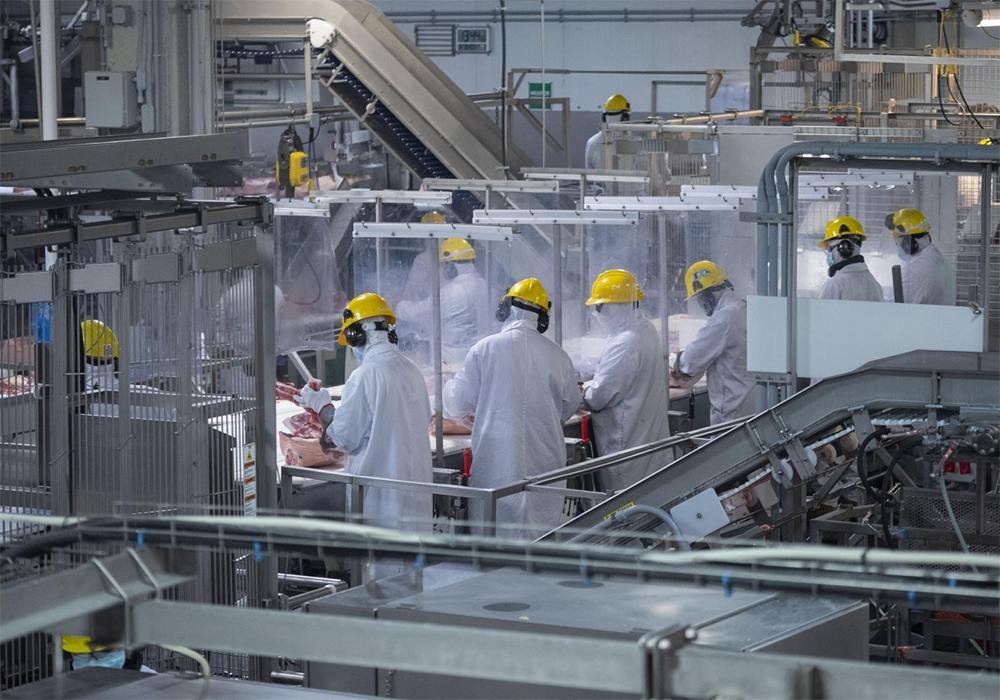Maple Leaf Foods Strategically Divides: Spinning Off Pork Business as Independent Entity
In a significant corporate restructuring move, Canadian protein giant Maple Leaf Foods has unveiled plans to separate its pork operations, creating a standalone public company. The transaction, announced in 2024, represents a watershed moment in the company’s evolution and is expected to conclude in the latter half of 2025, contingent upon regulatory approvals.
The bifurcation of Maple Leaf Foods aims to “unlock significant growth potential” by allowing each entity to pursue its distinct strategic objectives without the constraints of operating under a unified corporate structure. Such corporate divorces have become increasingly prevalent in the food sector as companies seek to maximize shareholder value through specialized focus. Maple Leaf’s decision mirrors similar strategic separations witnessed across various industries in recent years, whereby conglomerates disentangle diverse business units to enhance operational efficiency.
The new pork company will operate under the moniker Canada Packers Inc., reviving a storied name in Canadian meat processing history. Dennis Organ, a seasoned executive previously with Smithfield Foods who joined Maple Leaf in 2023, will ascend to the chief executive position of the spun-off entity. Organ’s industry acumen and familiarity with pork operations position him advantageously to steer the nascent company through its formative phase.
Maple Leaf’s President and CEO Curtis Frank will maintain leadership of the parent company while retaining a 19.9% ownership stake in Canada Packers. This arrangement establishes a symbiotic relationship between the two organizations, ensuring continuity and mutual benefit. Frank emphasized that “this transaction is the start of a new era to unlock the full potential of two outstanding businesses, each with a distinct value proposition and growth opportunities.”
The corporate restructuring has received enthusiastic endorsement from Maple Leaf’s board of directors and its principal shareholder, the McCain family, renowned for their eponymous French fries brand. Michael McCain, serving as Executive Chair, expressed unwavering confidence in the separation’s transformative potential for both enterprises.
A pivotal component of this corporate bifurcation is the implementation of an evergreen pork supply agreement. In accordance with this arrangement, Canada Packers will furnish Maple Leaf Foods with premium-quality sustainable pork at competitive market prices, while Maple Leaf will reciprocate by providing brokerage and ancillary services to its former subsidiary. The provision guarantees Canada Packers a stable customer base as it expands its international clientele.
The transaction is being structured as a tax-free butterfly reorganization, a mechanism that necessitates advance approval from the Canada Revenue Agency. Maple Leaf submitted the requisite ruling request with an anticipated decision timeline of approximately nine months. A shareholder meeting has been scheduled for June 2025 to approve the transaction, which could finalize shortly thereafter if regulatory clearance is obtained and other customary conditions are met.
Following the split, Canada Packers will emerge as an integrated pork enterprise specializing in sustainably produced, premium-quality value-added products. It will serve as a critical supplier of both Raised Without Antibiotics (RWA) and conventional pork offerings to customers across Canada, the United States, and international markets. Meanwhile, Maple Leaf Foods will focus exclusively on its Prepared Foods division, potentially allowing for more targeted investment and innovation strategies.
The separation represents the culmination of groundwork laid throughout 2024, what the company characterizes as a “transformational year.” After the restructuring, both entities will benefit from sharpened execution focus under dedicated management teams and financial independence to pursue their respective growth trajectories.
Industry observers note this strategic uncoupling reflects broader market trends where specialized operations often achieve higher valuations than diversified conglomerates. This separation could potentially allow investors to more accurately assess and value each distinct business based on its individual merits and sector-specific dynamics, ultimately enhancing overall market capitalization for both enterprises.

